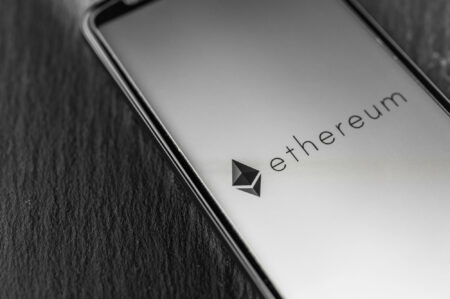What has happened this week in the world of blockchain and cryptocurrencies? The most relevant local and international events, as well as appealing background reports, are presented in a pointed and compact manner in the weekly review.
Selected articles of the week:
US President Donald Trump signed an executive order in March 2025 that established a “strategic Bitcoin reserve.” This reserve consists of confiscated Bitcoins and must be held long-term. Additional purchases were also allowed, provided they remain budget-neutral. At the same time, the states of New Hampshire and Arizona recently passed laws enabling them to invest a portion of their public funds in Bitcoin. These developments could encourage other states to take similar actions. In Switzerland, an initiative committee wants to require the Swiss National Bank to also invest in Bitcoin. Specifically, the proposal would amend the section of the Federal Constitution that mandates a currency reserve in gold. Additionally, the SNB would be required to hold a portion of its reserves in Bitcoin. The collection period runs until the end of June 2026, with the challenge of gathering 100,000 signatures.
Trump and single US states launch Bitcoin reserves – a milestone for crypto as a strategic asset in financial policy.
JPMorgan leaves the “walled garden”
In the past, the US banking giant JPMorgan conducted various blockchain tests. However, these pilot transactions always took place on private, proprietary networks. As a result, the numerous benefits of public blockchains – transparency, decentralization, security, and liquidity – were largely absent. Now, the bank is taking a further step. Through the public Ondo Chain testnet, JPMorgan traded a tokenized US Treasury bond fund. The payment processing was handled by the new JPM unit, Kinexys Digital Payments. The symbolic significance of the test is high: it shows that Wall Street is serious about integrating DeFi elements into the real financial world.
JPMorgan tests public blockchain for tokenized US Treasuries for the first time – with Chainlink and Ondo Finance as partners.
What is the state of the Crypto Valley?
The region of Switzerland and Liechtenstein ranks as the “Crypto Valley” among the most attractive locations for blockchain companies. Even last year, the number of established firms rose by 14% to 1,749. This is according to a report by Zug-based venture capitalist CV VC. Recently, however, industry representatives have struck a different tone. Associations are warning about increasing international competition. Countries in Asia and the Middle East are catching up rapidly and are providing increasingly attractive conditions for blockchain companies. The sharp policy shift of the Trump administration has sparked a fire. At the same time, lengthy processes, regulatory uncertainties, and new international requirements are perceived as obstacles in Switzerland. Therefore, the results for the ongoing year will be interesting. It is likely that Switzerland will not be able to maintain its lead.
The number of companies based in the “Crypto Valley” increased by another 14% last year, according to an industry report.
Solana becomes an “Ethereum killer”
Solana is one of the leading smart-contract blockchains and directly competes with Ethereum. Fundamentally, the network differs through a combination of high transaction speed (transactions per second, TPS), low fees, and a monolithic architecture. Unlike Ethereum and its Layer-2 networks, everything on Solana runs on a single layer – from DeFi to NFTs – without bridges or fragmentation. This allows users to interact with minimal friction while developers can access a unified environment. In the first quarter of 2025, Solana dominated nearly all key metrics – from active wallets to NFT trading to mobile applications. Only in the Decentralized Finance (“DeFi”) space does Ethereum remain the leader.
Solana dominates Web3 in Q1 2025: More users, better UX, and high performance make the chain the strongest Ethereum alternative.
CryptoPunks change owners again
In addition: The NFT collection CryptoPunks, created in 2017 by Larva Labs and later acquired by Yuga Labs, is considered a pioneer of the digital art culture. The collection consists of 10,000 unique, algorithmically generated characters and has generated a trading volume of over 3 billion US dollars since its creation. With a floor price of 46 Ethereum – over 120,000 USD – Punks are the most valuable NFT collection by market capitalization. However, they have so far remained largely untouched by the established art world. The Infinite Node Foundation aims to change this through the strategic acquisition of the IP rights. The organization has also provided a foundation capital of 25 million US dollars to promote exhibitions, research, and educational projects related to CryptoPunks.
CryptoPunks IP sold to Infinite Node Foundation for 20 million USD – NFTs move closer to the traditional art market.









